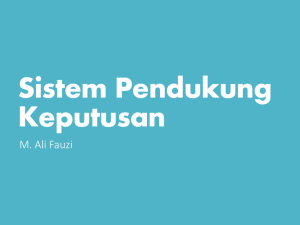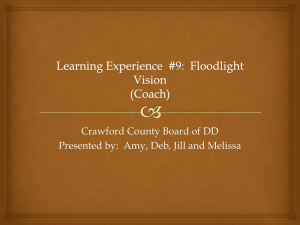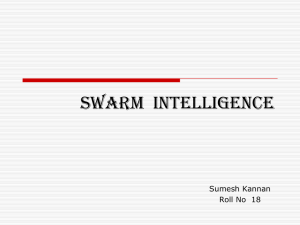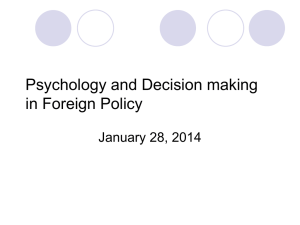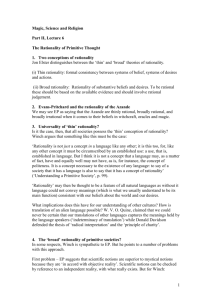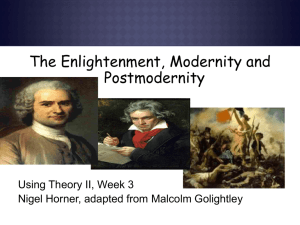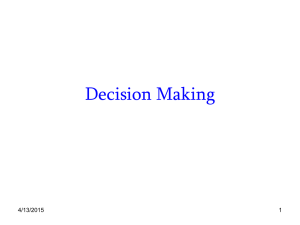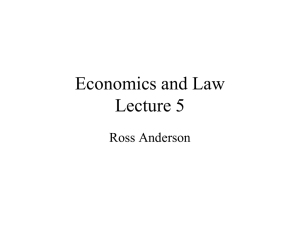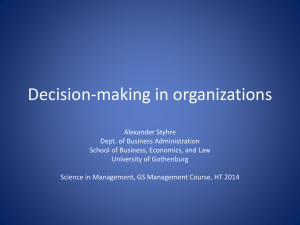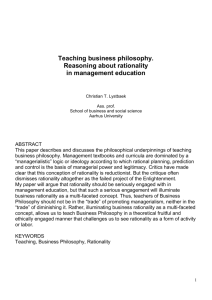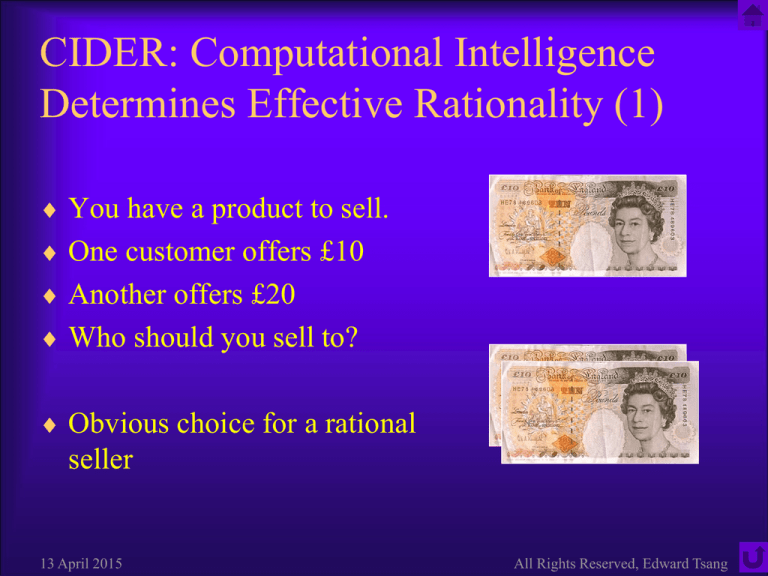
CIDER: Computational Intelligence
Determines Effective Rationality (1)
You have a product to sell.
One customer offers £10
Another offers £20
Who should you sell to?
Obvious choice for a rational
seller
13 April 2015
All Rights Reserved, Edward Tsang
CIDER: Computational Intelligence
Determines Effective Rationality (2)
You are offered two choices:
– to pay £100 now, or
– to pay £10 per month for 12 months
Given cost of capital, and basic
mathematical training
Not a difficult choice
…
13 April 2015
All Rights Reserved, Edward Tsang
CIDER: Computational Intelligence
Determines Effective Rationality (3)
Given 50 stocks from various sectors:
– Stock i bears a return ri and a risk i
– Prices between stocks i and j are correlated i,j
– Budget B, Risk free return rs
This is a very
Constraints:
– Stocks sold in lots (e.g. 100)
– Maximum holdings in each sectors
– Etc. etc.
Decision to make:
– Pick 10 stocks within budget
13 April 2015
hard problem
Some could
make wiser
decisions than
others
All Rights Reserved, Edward Tsang
CIDER: Computational Intelligence
Determines Effective Rationality (3)
Task:
– You need to visit 50
customers.
– You want to minimize
travelling cost.
– Customers have different
time availability.
In what order should you
visit them?
13 April 2015
This is a very hard
problem
Some could make wiser
decisions than others
All Rights Reserved, Edward Tsang
The CIDER Theory
Rationality involves Computation
Computation has limits
Herbert Simon: Bounded Rationality
Rubinstein: model bounded rationality by explicitly
specifying decision making procedures
Decision procedures involves algorithms + heuristics
Computational intelligence determines effective
rationality
Where do decision procedures come from?
– Designed? Evolved?
13 April 2015
All Rights Reserved, Edward Tsang
1978 Nobel Economic Prize Winner
Artificial intelligence
“For his pioneering research into the decision-
making process within economic organizations"
“The social sciences, I thought, needed the same
kind of rigor and the same mathematical
underpinnings that had made the "hard" sciences
so brilliantly successful. ”
Bounded Rationality
– A Behavioral model of Rational Choice 1957
Herbert
Simon
(CMU)
Artificial
intelligence
Sources: http://nobelprize.org/economics/laureates/1978/ http://nobelprize.org/economics/laureates/1978/simon-autobio.html
13 April 2015
All Rights Reserved, Edward Tsang
“Bounded Rationality”
Herbert Simon:
– Most people are only partly rational, and are in fact
emotional/irrational in part of their actions
“Boundedly” rational agents behave in a
manner that is nearly as optimal with respect to
its goals as its resources will allow
– Resources include processing power, algorithm and
time available
Quantifiable definition needed?
13 April 2015
All Rights Reserved, Edward Tsang
Modelling Bounded Rationality (1998)
Rational decisions are optimal
decisions
– But decisions makers often try to
satisfy constraints
– Rather than finding optimality
Rationality comes from decision
making procedures
Ariel Rubinstein
New York University
13 April 2015
– Procedures should be specified
explicitly
– This put the study of procedures on
the research agenda
All Rights Reserved, Edward Tsang

